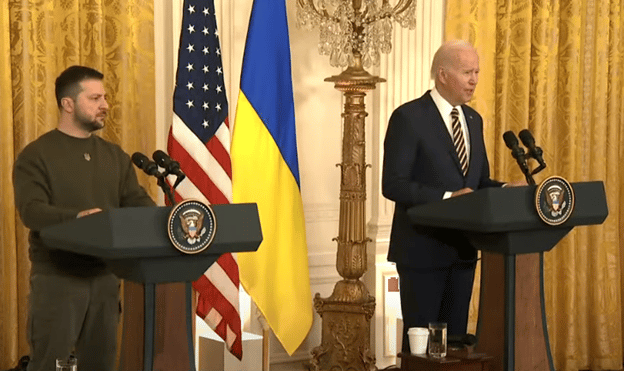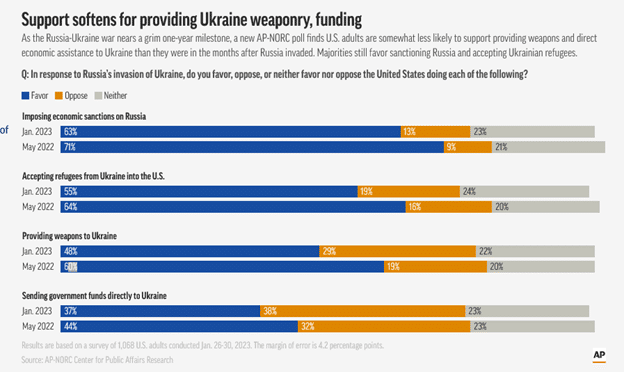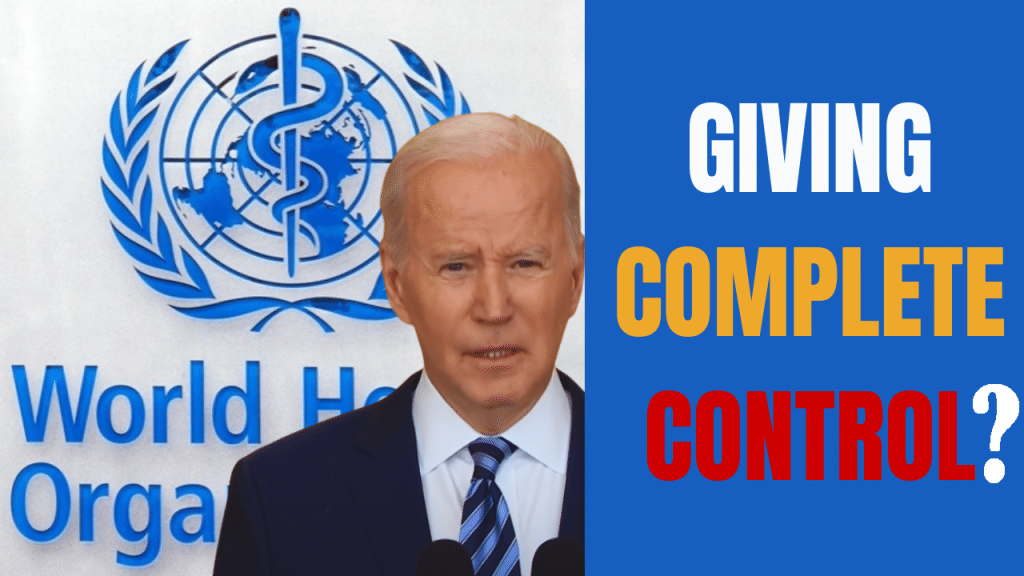Feb. 24, 2023
Permission to republish original opeds and cartoons granted.
Public has Turned Against the War Hawks Drumming for Intervention in Ukraine

By Bill Wilson
Public support for arming and funding military operations in Ukraine has dropped substantially from a year ago, and public opinion has turned decidedly in favor of non-intervention. A new AP poll shows over half of Americans reject outfitting Ukraine with weapons and sending financial aid to the country, and objection is highest among Republicans.
While war hawks on both sides of the aisle work to further ensnare the U.S. in the geopolitical disputes of Eastern Europe, the American people largely see the dispute as a minor threat to U.S. interests and do not want to become more involved.
The Pew Research Center found the share of Americans who think the Russia-Ukraine conflict is a “major threat” to U.S. interests has dropped in both parties. Well under half of Democrats (43%) now see the Ukraine situation as a “major threat” and just 29% of Republicans do. Pew also found the share of American who think the U.S. is giving too much aid to Ukraine is up 19 percentage points since Russia launched its invasion of Ukraine.
The war-hungry globalists pushing for intervention in Ukraine are losing power over public perception, but nonetheless it is still undeniably leftists beating the drums of war the loudest. If you are antiwar in 2023 but still identify as a Democrat you are in the wrong party.
Two-thirds of Democrats (63%) support arming Ukraine with weapons compared to 39% of Republicans, and 59% of Democrats support sending government funds to Ukraine compared to 21% of Republicans.
Democrats also support arming Ukraine with fighter jets (62%), long range missiles (61%), and tanks (69%) at far higher rates than Republicans do. Less than half of Republicans support arming Ukraine with these weapons for war.
Public support for continuing to supply Ukraine with weapons has dropped from 60% in May 2022 to under half (48%) today. Sending funds to Ukraine was never particularly popular among the public, but what little support there was for funding Ukraine’s disagreement with Russia is rapidly eroding. Just 37% of Americans now believe the U.S. should continue sending funds to Ukraine, down from a lukewarm 44% in May 2022.

What is more, almost three-quarters of Americans say the U.S. should have either a minor role (49%) or no role at all (24%) in the Russia-Ukraine conflict, while just 26% say the U.S. should have a major role.
The share of Democrats who say the U.S. should have a major role remains substantially higher than the share of Republicans at 40%, down from 48% last March. Back in March just over a third of Republicans (35%) believed the U.S should have a major role, but that sits at just 17% today.
Democrats beating the drums of war is sure to have repercussions with younger voters and minorities within the base. YouGov polling shows only 17% of Hispanics believe the U.S. should give more aid to Ukraine compared to around a quarter of Whites and Blacks. Hispanics, Millennials, and Gen X, are also more wary than other groups of arming Ukraine with weapons of war, including long range missiles, tanks, and fighter jets.
Americans for Limited Government Foundation found that younger voters won’t even consider a candidate who supports foreign wars. Our research shows 68% of young Republicans, an equal share of young Democrats (68%) and 71% of young Independents say the U.S. should stay out of international conflicts as much as possible and over half would not support a candidate who supports foreign wars.
The tide turning in favor of non-interventionism is breathing life back into the idea of peace through strength, and that is essential if the U.S. is going to fortify our own military should we be threatened directly.
Support for intervention in Ukraine was used by those in power as a political litmus test, much like the draconian covid-19 mandates were. It was intended to test compliance – obedience to those faceless bureaucrats who actually control the government. Originally, close to two-thirds of Americans bought into the idea that the U.S. should involve itself in Ukraine, but that number has shrunk to less than half. Americans have rejected the litmus test and thrown it right back. After watching the costly, pointless, and drawn-out nightmare that became our legacy in Afghanistan, the American people are weary of entering an equally worthless course in Ukraine.
As the cheerleaders for war make speeches calling for ever greater amounts of treasurer to Ukraine and ever increasing risk of serious war for the U.S., their voters are walking away. Whether Mitch McConnell’s blind subservience to the Deep State or Joe Biden’s dutiful reading of the que-cards, the so-called “leaders” of both parties could not be more out of step with the public than they are today.
Bill Wilson is the former President of Americans for Limited Government.
To view online: https://dailytorch.com/2023/02/public-has-turned-against-the-war-hawks-drumming-for-intervention-in-ukraine/
Cartoon: A Tale of Two Presidents
By A.F. Branco

Click here for a higher level resolution version.
To view online: https://dailytorch.com/2023/02/cartoon-a-tale-of-two-presidents/
Video: Is Twitter Supporting TERRORISM By Existing?

To view online: https://www.youtube.com/watch?v=zJHKqQaKeHs
Biden’s World Health Organization draft ‘treaty’ makes ‘sovereign right’ to manage public health and pandemics ‘provisional’

By Robert Romano
A draft World Health Organization (WHO) Pandemic Agreement, released on February 1, would make U.S. sovereignty to make its own decisions about public health and pandemic management provisional, “provided that” the U.S. response and activities “do not cause damage to their peoples and other countries.”
Article 4, Section 3 of the draft agreement states, “Sovereignty – States have, in accordance with the Charter of the United Nations and the principles of international law, the sovereign right to determine and manage their approach to public health, notably pandemic prevention, preparedness, response and recovery of health systems, pursuant to their own policies and legislation, provided that activities within their jurisdiction or control do not cause damage to their peoples and other countries. Sovereignty also covers the rights of States over their biological resources.”
The draft agreement also allows for provisional adoption of the agreement in Article 35 to expedite implementation, entitled, “Provisional application by the Parties, and actions to give effect to the provisions of the WHO CA+ by the World Health Assembly.” Article 35, Section 1 states in part, “The WHO CA+ may be applied provisionally, in whole or in part, by a signatory and/or Party that consents to its provisional application by so notifying the Depositary in writing at the time of signature of the instrument, or signature or deposit of its instrument of ratification, acceptance, approval, formal confirmation or accession.”
This essentially means that signatories like the U.S. — President Joe Biden is planning on signing the agreement — would retain sovereignty over their pandemic responses, but only insofar as it does not harm the American people and/or other countries, in the opinion of the other signatories, the World Health Assembly and WHO.
That is provisional sovereignty. And yet, provisional sovereignty is no sovereignty at all. The implication is that Biden apparently plans on agreeing to accepting the WHO’s dictates for any future pandemics that may arise.
To add insult to injury, Biden has no intention of sending this agreement to the U.S. Senate for ratification as a treaty. It would be one of those executive agreements that, like the Paris Climate Accords, was not really binding (although certain federal courts might invariably disagree), similarly allowed countries to set their own carbon emissions targets and never had any true enforcement mechanisms.
Former President Barack Obama signed the Paris agreement in 2016, former President Donald Trump pulled the U.S. out of the agreement in 2017 and current President Joe Biden brought the U.S. back into the agreement in 2021. In the meantime, actual emissions policies — to the extent any of them are even in effect any more after the Supreme Court struck down the so-called Clean Power Plan imposed on states in West Virginia v. EPA — are set by Congress by law and the executive branch by regulation.
To the extent that such executive agreements, whether the Paris accords or the WHO agreement lack any bipartisan input at all via the Article II, Section 2 treaty making process, they are hardly worth the paper they are printed on and amount to international virtue signaling. The downside is the U.S. will be a party to the agreement while Biden remains in office. The upside is that a future president can just ignore them or else just withdraw from them, as Trump did with the Paris agreement in 2017.
In the meantime, legislation offered by U.S. Sen. Ron Johnson (R-Wis.), if passed and signed into law, would have the WHO convention be “deemed to be a treaty” under law, mostly to create an up or down vote in the Senate that would stand a good chance of defeating the agreement if it were to come up.
Leaving aside constitutional arguments — is it “necessary and proper” for Congress under Article I, Section 8 of the Constitution to determine which prospective, draft international agreements the President must be delivered to the Senate, or is it in the President’s sole determination alone under Article II, Section 2 of the Constitution to say what constitutes a treaty? — the fact remains that under this particular agreement, the U.S. would only retain sovereignty over public health and pandemic response “provided that activities within their jurisdiction or control do not cause damage to their peoples and other countries.”
That might make this particular executive agreement unconstitutional, since it appears to potentially override U.S. laws and regulations that Congress and the President might put into effect in the event there is another global pandemic, and yet without any Senate ratification cannot effectively be deemed to be the “supreme law of the land” under Article VI of the Constitution.
Implicitly, that would mean states like Florida or Texas, which are bound by the Supremacy Clause to follow the Constitution, federal laws and treaties brought into effect under the terms of the Constitution, and therefore would be under no obligation to follow it if forced to choose between federal laws and regulations and contrary instructions from WHO. So why bother? States may wish to test this particular executive agreement in federal court.
President Biden should just submit the agreement as a treaty to the U.S. Senate if he feels strongly enough about it and wishes it to have any lasting impact. Of course it will be dead on arrival and go down in flames as Senate Republicans refuse to submit to a world governing body, but that is really no different than signing onto what amounts to a joint letter or press statement, pretending mightily that any of it really matters.
Robert Romano is the Vice President of Public Policy at Americans for Limited Government Foundation.

